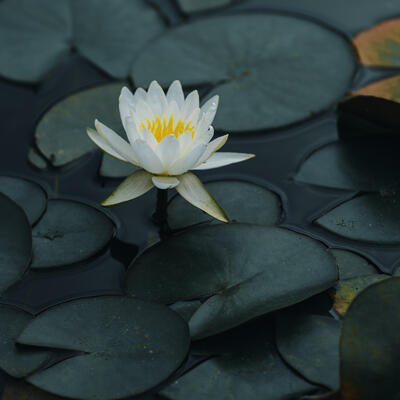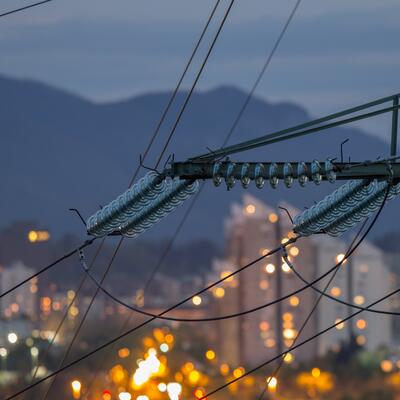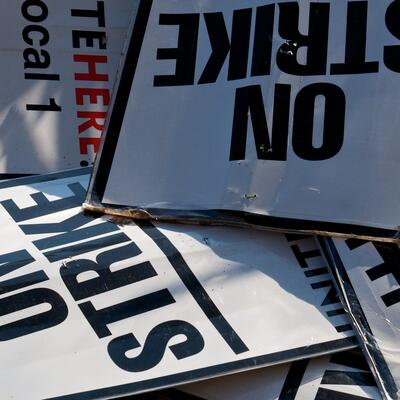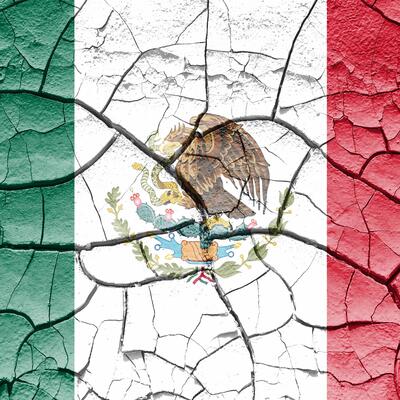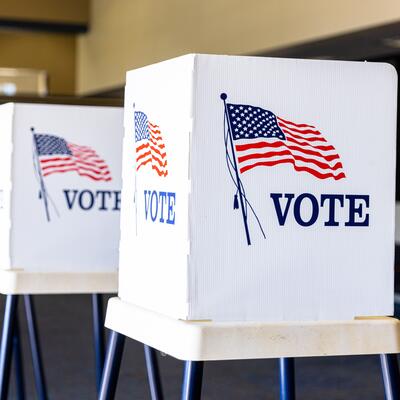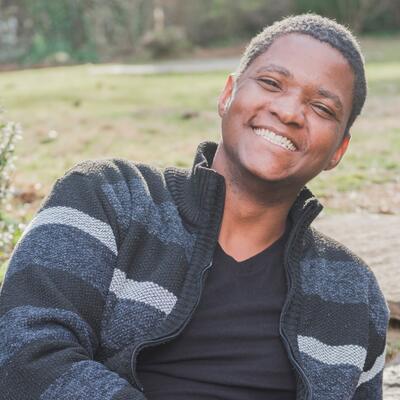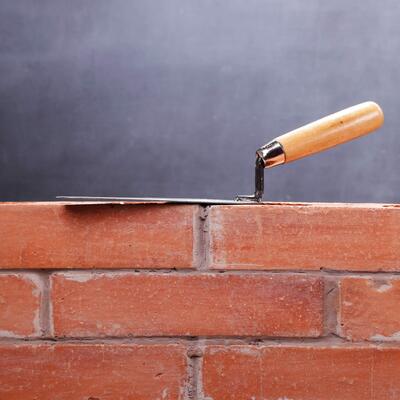
Adulting in Turbulent Times
Guests
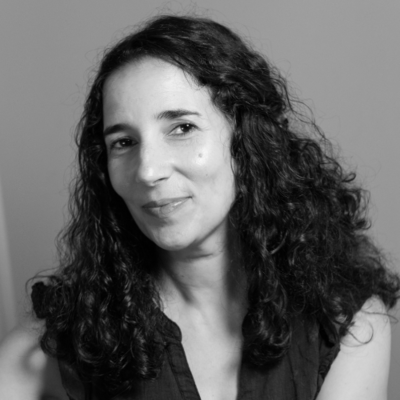
Emily Raboteau
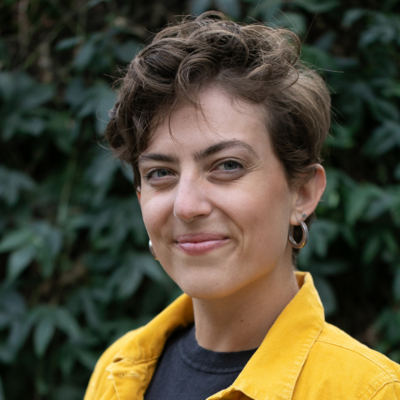
Ana Alanis
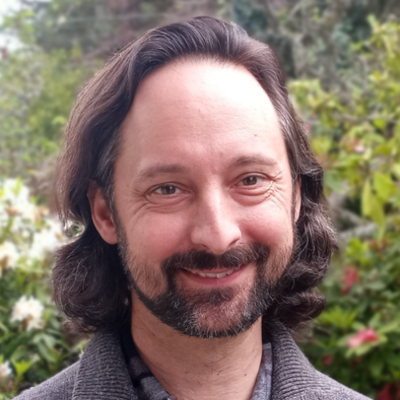
Andrew Bryant
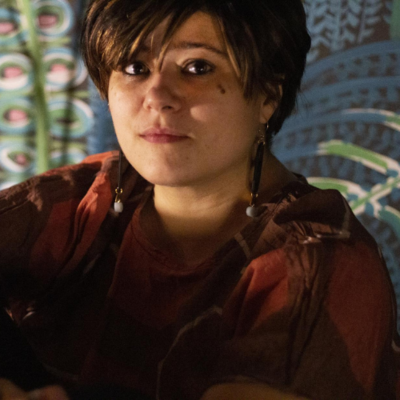
Alana Casanova-Burgess
Summary
Acting like a responsible adult can be challenging at the best of times. Add dealing with climate chaos to the mix, and keeping it all together can feel like an outright miracle. Emily Raboteau is the author of the new book of essays “Lessons for Survival: Mothering Against ‘The Apocalypse’” and a New Yorker who resides in a low lying part of the Bronx. She and her family have experienced the effects of climate change firsthand through flooding, storms, and extreme rain events known as rain bombs.
It’s a lot to deal with, but Raboteau is adamant that it’s not the end of times. “The apocalypse is in quotes because I didn't want to act as though the future is foreclosed… and I wanted to be respectful to historically resilient communities who've lived through existential crises in the past,” says Raboteau.
Finding a way to talk about climate change, racism and other threats with her children in an honest way without instilling excessive fear is a delicate balance. But confronting the complex reality of our world is not something Emily wants to keep from her kids. “I've learned that pointing to the solutions like local solutions is really helpful, both for my kids and for me so that we, you know, don't drown in anxiety about it.”
Raboteau thinks of the word "mother" as a verb rather than a noun, emphasizing the action of mothering and nurturing rather than just the identity or role. “ I'm not really thinking about mothering in terms of the experience of having had a child come through one's own body, but rather an expression of radical care,” says Raboteau. Through her research, Raboteau has learned that one way those before us have survived existential threats is by taking care of one another. Embracing the role of nurturing and caring for one another as a means of survival in turbulent times might be our best bet.
Ana Alanis is a climate justice advocate and the founder of Hungry for Climate Action. In 2021, her childhood home in Coffee Creek, California, was destroyed in the River Complex Fire. Immediately following the fire, Ana channeled her grief into action and began taking care of those around her. She started a climate newsletter, found a new climate job and poured all of her waking energy into doing whatever she could to take on the climate crisis. That proved too much, too fast.
Anna paused and reassessed her life. She slowed down, began somatic therapy, practiced yoga, found community support and was able to once again find her grounding and a sense of purpose. She considers the experience transformative, “ I have so much hope for what we can achieve together, for everything that we can save, knowing that a part of it is also mourning our losses and tending to our fears,” says Alanis. She is now pursuing a master's in social work at UCLA, aiming to integrate climate resilience into mental health support and policy advocacy.”
Andrew Bryant, a clinical social worker and psychotherapist based in Seattle, noticed a growing concern among his clients regarding climate change beginning in 2017. As a new father to two children at the time, his clients’ fears about the future resonated with him. He realized he lacked training in addressing these issues and began researching resources to better understand the issue and support his clients.
The therapy world has changed a lot since then. "Eco-anxiety" is now a commonly used term. Bryant emphasizes the importance of validating climate fears and not minimizing them. He recommends fully processing one's emotions before taking action, recognizing that rushing into solutions can lead to burnout or ineffective responses. “The more we can sit with our feelings, explore them, see what they actually are, the more we're able to take meaningful action,” says Bryant.
Episode Highlights
2:10 - Emily Raboteau on experiencing climate first hand
4:08 - Emily Raboteau on coming up with the title for her book
11:24 - Emily Raboteau on climate conversations with her kids
18:32 - Ana Alanis on being forced out of her childhood home due to fire
21:27 - Ana Alanis on turning grief and loss into action
29:28 - Ana Alanis on how the wildfire may have changed her life for the better
33:33 - Andrew Bryant on seeing an increase in clients discussing climate
38:00 - Andrew Bryant on people reaching out to him after his website went up
47:32 - Andrew Bryant on how he avoids burn-out
Resources From This Episode (5)
Full Transcript
Note: Transcripts are generated using a combination of automated software and human transcribers and may contain errors. Please check the actual audio before quoting it.
Ariana Brocious: I’m Ariana Brocious. And this is Climate One. Today’s show is all about how to navigate a world in the grips of multiple crises… especially at the time when your own life is in flux.
[music change]
Ariana Brocious: But before we dive in, we have some exciting news: and that’s to welcome our guest host Alana Casanova-Burgess. She’s the co-creator, host and producer of the podcast La Brega – which tells the story of the Puerto Rican experience in English and in Spanish. You may have also heard her work on 99% Invisible, The New Yorker Radio Hour, and Latino USA. She’ll be joining me this summer while Greg Dalton takes some much-deserved time away. Welcome, Alana!
Alana Casanova-Burgess: Hello hello, thanks for having me.
Ariana Brocious: We’ve got a lot of great episodes in the next few months and I’m glad you’ll be sharing the mic with me. Today’s show is called Adulting in Turbulent Times. Alana – does that phrase resonate with you?
Alana Casanova-Burgess: I’ve done some adulting in my life. How about you?
Ariana Brocious: (laugh) Me too… I admit I feel a little surge of pride in myself when I manage to get my car to the mechanic or change the filter on the fridge water or something. For many of us, the period from your late 20s to mid 40s is all about seeking stability – finding a career, buying a house, maybe a partner, and perhaps kids. There’s a term we’ve come to associate with some of this: “Adulting.”
Alana Casanova-Burgess: And the word adulting is complicated depending on who you are. Some people have been real adults for years, translating for their parents or raising themselves in very real ways. And sometimes I wince at that word because as a generation – I’m a millennial – are we really such babies that we need a word for being grown ups? Sometimes it sets my teeth on edge. Almost cloying. We’re so cute. If I think of past generations, being an adult meant things like buy a home and have a mortgage or having the same job for decades and decades – these quite large ambitions. And whenever I open tik tok someone is telling me how to make myself lunch in a coherent way – like that’s the biggest challenge for us to overcome is how to learn some kind of hack for organizing a closet. Our aspirations are much smaller. And I totally get that, because it is really hard to feed yourself lunch. And closets are really tricky.
Ariana Brocious: (laugh) Yeah closets are tricky! and by the way, so many of my friends are struggling under the weight of student loans, many can’t even think of affording a house… and many are wondering if it’s even a good investment to buy a house with growing climate threats.
Alana Casanova-Burgess: Yeah, I’ve actually been working on a story that comes out later this month for 99 Percent Invisible. And it’s about the idea of adding another level to the hurricane rating scale we all use. Currently it goes up to 5, and given the increasing intensity and severity of hurricanes, there’s a lot of discussion about adding a 6 to the scale. We live in a time when it feels like 5 is not enough. You’ve seen the movie This is Spinal Tap, right?
Ariana Brocious: Yes! You’re saying we need to turn the amp up to 11.
Nigel: The numbers all go to 11
Alana Casanova-Burgess: Exactly, exactly! But, y’know Nigel is talking about amps. And the volume is really the same between 10 and 11, that’s the joke. But for us, 11 really is one louder. Like we need a new metric to effectively articulate how intense everything feels at the moment. We need a new word for bad.
Ariana Brocious:Yeah and that says something kind of profound about the moment we’re at. And In the U.S. we grow up believing in this very American idea of individualism and independence - but really, the way through moments of crisis is to depend on each other. And some of adulting is about this: in addition to figuring things out for yourself, it’s about learning to care for others in your life – whether that’s children, aging parents, friends that are family…
The world is at 11, the world is at 6, but we have to find ways to be a stable influence on the people we love, and the people around us. Not only as a necessity in multiple crises but also because it can feels kinda good to do that.
Ariana Brocious: And I think finding purpose and maybe even joy amidst the chaos is a powerful tool for survival and resilience. So we’re going to talk about that today. And up first, my conversation with the writer Emily Raboteau. Her latest book is “Lessons for Survival: Mothering Against “The Apocalypse.”
Ariana Brocious: For some of us, even now, climate still feels this down the road problem or this thing that's happening elsewhere. And you, like many of us, have begun to see these impacts really arrive at your doorstep. Can you tell us a little about experiencing climate firsthand?
Emily Raboteau: So in New York City, how we've been experiencing it, particularly in my neighborhood is with flooding. I live in a low lying area of the Bronx. And we just had a rainbomb today.
Ariana Brocious: A rainbomb. What is that even?
Emily Raboteau: It's when you get these really sudden, really strong rainfall events that overwhelm the sewer system, so, you know, one of the effects of climate change we're getting in the northeast is extreme increase in rainfall. I think there's something like 60 percent more extreme rainfall events than there were when I was a child, for example. so. It makes me uneasy. I used to remember as a child when it rained heavily, feeling kind of like drowsy or pleased by the sound of the rain on the roof. Now, it's more a feeling of fear about what it means and how unfit, like how unsuited the city is to handling that amount of water.
Ariana Brocious: I have a similar reaction now during the monsoon season here I live in southern Arizona and we get always, you know, monsoons by nature are sort of these big torrential rains, but they've gotten, in my opinion, more intense, and it can be scary to just be inside and like watching the rain come and hearing it. So, the book encompasses a lot of different experiences. And a foundational part of it is about motherhood. The title is of course “Lessons for Survival: Mothering Against ‘The Apocalypse.’” I'm curious how you arrived at that title?
Emily Raboteau: I like the idea of thinking about mother as a verb instead of a noun, what it means to mother, like what it means to nurture. I'm not really thinking about mothering in terms of, you know, the experience of having had a child come through one's own body, but rather, an expression of radical care. And I said against the apocalypse. And the apocalypse is in quotes because I didn't want to act as though the future is foreclosed, and I also felt it was disrespectful to activists who are really working very hard on this problem, to suggest that we're in an apocalypse. Another reason I put it in quotes is that I wanted to be respectful to historically resilient communities who've lived through existential crises in the past. And one of my aims for this book was to look for lessons in survival from people from those communities.
Ariana Brocious: One of them being your own grandmother, right?
Emily Raboteau: Yeah, well, I was tasked with writing about a couple of books for the New York Review of books that were about sea level rise. One of them was Elizabeth Rush's book, Rising, and I kept thinking as I was reading these books about my grandmother. Like, I couldn't help thinking about her. Her name was Maybel Sincere Raboteau, and she was a black woman from Bay St. Louis, Mississippi. And in 1943 when she was pregnant with my dad, her husband, my grandfather, Albert Raboteau, was shot and killed by a white man who was never prosecuted for the crime, for something really petty. And, after giving birth to my dad, she fled the Jim Crow South and the terror of that place to the North and she raised him in Michigan along with his two older sisters, my aunties.
Ariana Brocious: But it had to be incredibly difficult. All of that had to be so hard.
Emily Raboteau: Yes, because she had to leave a home that in many ways she loved. That was where her people were from for generations, right? And so the loss of a landscape that she loved, the loss of close family members that she loved. And yeah, I kept thinking of her while reading these books on sea level rise that were making a case for a managed retreat actually. As somebody who lives in a coastal city threatened by sea level rise where, where people have died in storms, you know, I'm thinking about hurricane Sandy in 2012, particularly, the coast of Staten Island where a lot of folks lost their lives while trying to work their sump pumps in their basements. And then afterwards got together in their communities and figured out how to practice managed retreat. Like they didn't want to go through that again. So figured out how to get back the pre storm value of their homes and move together to safer territory. Kind of reminded me of what my grandmother had done like an act of bravery, but also humility in the face of something, that is an existential threat, right?
Ariana Brocious: Yeah. So I want to turn now a bit to your own experience as a mother. You have two sons. One of them, I think the eldest had a fascination for a while with trains, but after visiting an American Museum of Natural History exhibit called Nature's Fury, his fascination switched to violent weather. This was an exhibit describing some of the more recent climate extreme 50 years.
Emily Raboteau: Yeah. Our older kid, he just turned 13 this week, but he's one of those categorical learners that goes really deep into a subject. So it was initially trains, at a certain point it was sharks, and then it was the Titanic, and then it was violent weather. We went to this exhibit at the American Museum of Natural History, which is the go to place for parents in New York on rainy days. But he was really little when we encountered that exhibit. He was like four or something, but he got really deep into violent weather, to the degree that he went through all the books in our local public library in his age range on that subject, the librarian had to like apologize to him and be like, sorry, Geronimo, we have no more books. I think I'm similar to him in that I feel safer about a scary subject, whether it's sharks or the Titanic, or extreme weather when I know more about it, And also, you know, when we were at that exhibit, my husband and I did feel a degree of trepidation about like, wait, there was this map of New York City. It was showing like the five boroughs and all the lights going out as it looked when Sandy struck, it was showing like the rising waters, and it was like a touch screen map, and it was just at the level, almost like coffee table level, it was like, like at a child's level where they could look at it, but it, it was making us really scared that what he was witnessing at a really young age was how at risk our city is, in particular to the rising sea. And, thinking about it afterwards, I realized, you know, like, well, this is not something we're looking ahead to. This is something that in fact already happened. Sandy happened when our first kid was a baby. And when I was pregnant with the second one, like it, it was a past event, not a future event. And so for me, confrontation with that exhibit was a bit of a wake up about not just what we can expect, but what's already here, right?
Ariana Brocious: Yeah. I think it's extremely hard to be able to face your children and be honest and truthful with them about what I don't know, what dangers there are in the world and also not scare them. How do you find a way through that?
Emily Raboteau: Yeah, I've been thinking a lot about, you know, what intergenerational justice looks like in practice. And I think it's working together, listening to the questions they're asking of us. Trying to answer the questions that they're asking, in my case, I've learned that pointing to the solutions like local solutions is really helpful, both for my kids and for me so that we, you know, we don't drown in anxiety about it. One example of climate mitigation happening in our neighborhood in the Bronx is that they're unburying this brook that was buried and piped into the sewer. In fact, our house is sited on like the former pathway of that brook. And we live, we live as it turns out, like paved over wetlands. And we didn't know that when we bought our house. No surprise when, like, I've done some research about it and discovered that flood zones often overlay with red lined communities. And these are also communities in zip codes like ours, where kids like mine have asthma because we're also sited near poisoning infrastructure. It's hard. I mean, I guess I'm admitting to how hard and how tangled it is to be parenting in these times and in particular in a fence line community like the one where I'm raising my boys. you know, the climate crisis, it's part of a larger polycrisis. It's a lot for them. It's a lot for us. But I think having conversations are really important. And what I feel like when I talk about this stuff with my kids, is, is like, it's okay to despair. We're often told, like, don't, you know, don't despair, as if that's a thing that…
Ariana Brocious: That you can switch off. Don't despair.
Emily Raboteau: Right, right, that you could switch off, well, yeah, that you could switch off. But I think the fear is that that's like a swamp of feeling that one cannot exit. Right? That you'll get sucked down as if it's quicksand or something. But I think like, there's so much to despair about. You should feel despairing on occasion, as long as we're not stuck there. it's also really cool to look and see, look, they're unburying this river, and that's going to help with flooding. And do you know how many people in our neighborhood and in this area, multiple levels have been working on that for years and we get to live in its watershed and that's pretty cool and like another feeling that that makes me feel is like, like a feeling of being in community, right? Like the joy of working on a problem with other people. So something about action, right? Yeah.
Ariana Brocious: You cover a range of topics in your book, from being medically gas-lit, to finding inspiration through community, to dealing with what the future might look like for your kids, and helping them deal with this present moment. Do you have a hope for a message or sort of central idea you'd like readers to take away from the book?
Emily Raboteau: Yeah, in the interest of acknowledging it's okay to despair and also not being stuck in that emotion. I think it's really wise to look for examples of resilience from communities that have lived through really hard stuff and, and have something to teach us about it, right? My favorite lesson that I got in the research that I did for this book was from an elder in the Yupik community in coastal Alaska, in the Arctic. At like the ground zero of the climate crisis in many ways in terms of the acceleration of global warming and how drastically and swiftly it's changing the landscape. This is a man in a town I visited called Alakanook, where the Yukon River empties out into the Bering Sea. I was tasked with interviewing him and other members of his community who had lived long to remember the time before warming began. And, you know, speaking of like intersectional crises, this was also a man who had been removed from his community as a child and sent to one of those residential Catholic schools.
Ariana Brocious: Boarding schools.
Emily Raboteau: Yeah, the boarding schools. Many of them had models like, you know, kill the Indian in the child. In the name of civilization where, you know, people were stripped of their language and their culture and their hair. He went to one of those places, but he made his way back. His name was Dennis Sheldon and his real name was Kitu Raulya. They didn't manage to completely take away his language and his attachment to culture. But I asked, what do we do with our anger? You know, and this was in the context of a larger conversation about how they're no longer salmon, right? How there's no longer the ability to hunt and gather in the same way for their people because of the changes, that climate change have wrought to the community that very homes are sinking into the river because permafrost is melting so fast. Like the very earth beneath our feet is turning to mud and it's so disorienting and disabling and horrifying. I asked him what do you do with your anger? And I meant that sincerely like such that it doesn't kill you because your right to anger is so whatever anger you might feel is so righteous, right? And he said that's easy, we take care of each other. Like that was his lesson for survival, right? For surviving the anger that this brings. and I knew when he said it, that it was right. Like that that was the truest lesson, actually. That's what I mean by, you know, when I say, when I say mothering as a verb, like it's that when he said it and it hit me in my heart, it was like the mother part. That already understood that the answer is just taking care of each other.
Ariana Brocious: It's a really powerful message. Emily Raboteau is author of Lessons for Survival, Mothering Against the Apocalypse, a beautiful and excellent and powerful book that I encourage everyone to read. Emily, thank you so much for joining us on Climate One.
Emily Raboteau: Thank you, Ariana.
Alana Casanova-Burgess: Today on Climate One – we’re talking about adulting in turbulent times.
Coming up, a wildfire destroyed a young woman’s home. Recovering from that loss set her on a new path.
Ana Alanis: I have so much hope for what we can achieve together, for everything that we can save, knowing that a part of it is also mourning our losses and tending to our fears.
Alana Casanova-Burgess: That’s up next, when Climate One continues.
We’ll be right back.
Ariana Brocious: Please help us get people talking more about climate by sharing this episode with a friend. And we’d love to know what you think of the show. Please give us a rating or review. You can do it right now on your device – and it really helps people find the show. Thanks!
This is Climate One. I’m Ariana Brocious. On last week’s show, we talked about wildfire resilience. That’s a term that encompasses a lot of things, but at its core is about learning to live with fire, understanding it as a natural and essential part of our landscape, in spite of the utter destruction it can leave in its wake. As part of that episode, we heard from Ana Alanis, who told us about losing her family home in northern California to the River Complex Fire in 2021. She described the experience of gathering special belongings from her house as the fire approached.
Ana Alanis: I do remember looking around, leaving up to the fire, um, just walking around the property and just looking around almost like it was somebody, like someone you loved at the hospital and you really hope they're going to pull through. But just in case they don't, you give them one more loving look, And you tell them one more time just how much they mean to you.
Ariana Brocious: While her family was unharmed by the blaze, the house and almost everything in it was gone. For Alanis, the years that followed were filled with grief, even thoughts of suicide – but eventually led her to a new career path. So, as we hear more about that on today’s show, please take care while listening.
Now let’s pick up her conversation with Greg Dalton, at the point just after the fire.
Greg Dalton: This is the fall of 2021. You are in your early twenties, just adulting. You're about kind of leaving this home. And then you go back to it.
Ana Alanis: Really forced out of the nest.
Greg Dalton: Yeah. Burned out of the nest. And then, you went back and so what did you see?
Ana Alanis: I mean, it was kind of funny deja vu. You were driving up and you see the same trees and road you've seen a million times before. And then there was just this one turn in the highway where the view changed and the trees opened up more and everything was gone. It was just burnt trees and sticks and my house was melted and it was quiet and eerie because all the animals had burned and I remember what really struck me is the rocks were all still in the same place. A lot had changed too, because right after the fire, there was heavy rain and because the roots had burned, there was massive flooding. So there were logs thrown around and the river had changed position. So much of it was disorienting. The destruction was horrible and really disorienting. And parts of it still felt familiar, which was comforting and awful because I know what it was supposed to look like.
Greg Dalton: And you say that after that you got into the superwoman thing and you tried to take care of everybody. We were working together at the same organization, the Commonwealth Club, should say that. And then you realized you weren't okay. and then you poured yourself into a new job. How did you work through that grief?
Ana Alanis: So right after the fire, the first trip up to Coffee Creek that was under the premise of getting to share my story with a news organization. So I felt like a journalist going back and was taking pictures and photos and recording myself and was writing stories about how I was feeling. And that felt really productive, and healing for me. A lot of people were asking how I was doing and it was kind of born out of that. I wanted them to know that, let them know the updates, like GoFundMe goal had been met. We were safe, we're okay. And I kind of realized the next stage of what I wanted people to do as they were checking on us and thinking about us was to talk about climate change and reflect with me about places that they loved and kind of in that way help me shoulder the loss and the pain of it.
Greg Dalton: What I'm hearing is, yes, feel for me and pity me, and do something about it. You want, sounds like you wanted to not, don't just, yeah, you wanted to turn that into reflection and action. It sounded like.
Ana Alanis: And it felt like there was an appetite for it. People were truly feeling, reeling for us. It was horrible. And once our physical needs were met and people were still thinking of us, that was the prompt that came naturally to me to offer to people of feel with me. My loss, but your potential loss. And then together, maybe we can mourn and work together to save everything that we still can.
Greg Dalton: And so you wrote in Medium, “What do I need now? I need you to talk about climate change, what you want. To fight to save what you may have already lost, what gives you hope in the wake of the climate crisis, and what confuses or scares you most.”
Ana Alanis: Yeah, I don't know if at that point I'd found Katharine Hayhoe's book, Saving Us. I know, I think, um, I know I found it around that time, but it felt really powerful to feel like in that moment where I felt so raw and broken and vulnerable all that I felt able to do was maybe talk about how I was feeling. And it felt really nice to feel like that was, or hear external affirmation from Katharine Hayhoe’s book, that that was valuable. And from the response from other people, getting back to your question of that kind of fed this feeling like that, that lifted my, my energy and my spirits. So I was making sure my parents were okay. Does everyone have therapy? Is the GoFundMe goal doing well? And thanking donors and trying to find a new job in climate related to climate. And I was just really going, going. I tried to start a newsletter talking about how we were doing. Like I wanted to keep going. It really brought me so much peace and solace and purpose until I just….was sputtering and like a car running out of gas. Sorry to use a fossil fuel. But I just was guh guh guh. I was anxious, having nightmares. I was feeling inept or unwilling to take care of myself. I was being a good little codependent and trying to just, is my partner okay? Is my boss okay? Looking at everyone but myself. and then the reality check was when I started to think, um, that maybe everyone would be better off if I wasn't around anymore.
Greg Dalton: Whoa.
Ana Alanis: And that thought was so not me. and really jolted me. So I reassessed, I shared with my close family and friends how I was feeling. I dialed back from work again, went on antidepressants for a little bit, got back into my body with yoga and some somatic therapy.
Greg Dalton: How did you pull through?
Ana Alanis: I think it was things like. Learning how to balance the urgency that is working in climate, the whole experience, of course, gave me this feeling of urgency, like the worst has happened and feeling like I had to go as fast as possible while also having to reckon with the fact that going nonstop was hurting me and was going to take me out of the fight.
Greg Dalton: You felt like you had to do more and go faster. And then you realize maybe I need to do less and go slower.
Ana Alanis: I heard this quote, these times are urgent. Let's slow down.
Greg Dalton: Yeah. I’ve heard something like that. It's very Eastern Buddhist or something like, yeah, in times of crisis, you need to calmly look around and think rather than. Go faster and maybe erratically. And at one point you, you kind of found your tribe and you found a particular group of people in a school that was a turning point, it seems.
Ana Alanis: It was, so part of the slowing down was I think really taking the time to tend to myself and get to know myself and my interests and really give space and support to myself in that way. And one of the twists and turns on that journey led me to Climate Farm School, which was a wonderful group of professionals from across industries who all came together to live on a regenerative farm for a week to hear from farmers in Sebastopol, learn about transforming our food system. And I felt so energized and alive, meeting all of these wonderful people and realizing they were lending all of their unique talents to this fight that means the whole world to me, fighting for a sustainable future. And I felt like we really had to have a chance, like that was really a moment where I just looked around at everyone and felt like we can do this. And then it just inspired me to want to delve more into climate mental health and maybe take some of my learnings of struggling with depression and grief and anxiety and urgency in this time and take some of those lessons. And maybe you pay it forward to support other people working in climate or impacted by climate.
Greg Dalton: And you're about to start a master's program at UCLA and how are you going to take that to UCLA in your graduate studies?
Ana Alanis: Yes, so I'm going to infuse climate into all of it. It's a master's in social work, so on the other side of it. I will be a trained mental health professional and also have training in policy creation and advocacy. And my throughline in all of this is climate resilience. I want to know how to be a mental health practitioner that can support people like myself, communities like myself, and climate professionals who are really in this, supporting rural low income communities and other land based populations like farmers, fisher people and indigenous communities and then in addition to that direct one on one mental health support, I am hoping that those experiences will continue to inform the work that I do as a climate activist, advocating for climate resilient policies like disaster preparedness plans, making tangible progress on climate action plans, pushing for food sovereignty in L.A., supporting urban regenerative farmers, et cetera, et cetera. There's so many wonderful opportunities for climate resilience. And I feel like if I can just help tune in, it's like I visualize a bunch of individual soldiers in a fight. And if I can kind of like support the troops as they're going out, that sounds good to me.
Greg Dalton: Yeah, it sounds like you do something we talk a lot about on the show, which is work at the individual level and also with a systemic vision in mind. So what have you, looking back, you're burned out of your childhood home, now you're going on to graduate studies to kind of at the intersection of climate mental health and disaster preparedness. What have you gained from your life being scorched by wildfire? Not something you'd ever want or wish, but as the suffering brought you some strength in surprising ways.
Ana Alanis: Absolutely. It brought me transformation. It's been really powerful to have gone through this experience and to be able, to connect with other people who have maybe gone through what I really afraid that they're going to experience what I have and are feeling anxious or lost, depressed, out of sorts, and to be able to sit in front of them and show that I'm still standing and have so much hope. I have so much hope for what we can achieve together, for everything that we can save, knowing that a part of it is also mourning our losses and tending to our fears. And it feels like a superpower to now be able to help some people along their journey.
Greg Dalton: So your home burned when you were in your early twenties. When you were in your early thirties, what's your vision? What would you like to look back on this time? And you've gone to graduate school, you're helping on climate policy. Maybe you're a clinician. What's the early thirties on a look back at this?
Ana Alanis: That's a lovely question. My first thought for it is I was just walking through Golden Gate Park the other day and I saw this really cool art installation where it was showing mile markers, but time and when you walked through, front to back, it was time markers, but bad things like 2035 was when the last species of this bird went extinct, something something else horrible. But then when you walk backwards, it was all these good possibilities, like how, like a different planet, alternate future. So I think putting my climate optimist futurist hat on, I picture a future where we're on the right path and I can have played a role in people feeling their way through this and tuning into more of their purpose and power and community and just all being a lot better for it.
Greg Dalton: Well, thanks for sharing on your story of grief and resilience and shifting your life and finding strength out of it. Thank you.
Ana Alanis: Thanks, Greg.
Coming up, a therapist says that when we’re feeling climate anxiety, it’s important to consider our emotions before jumping into action:
Andrew Bryant: The more we can sit with our feelings, explore them, see what they are, actually are, the more we're able to take meaningful action. That's really in alignment with our strengths, our capacities, our limitations and what we really have to offer.
Ariana Brocious: That’s up next, when Climate One continues. We’ll be right back.
This is Climate One. I’m Ariana Brocious.
Alana Casanova-Burgess: And I’m Alana Casanova-Burgess.
Ariana Brocious: In recent years, we’ve been hearing more about eco-anxiety and climate grief. The terms are more commonplace, especially among younger generations and those working in the climate space.
Alana Casanova-Burgess: Now, eco-anxiety is recognized by the American Psychological Association - which defines it as “a chronic fear of environmental doom.”
Ariana Brocious: Andrew Bryant is a clinical social worker and psychotherapist who works with people experiencing a range of emotions and situations. Starting around 2017, he found himself encountering more and more clients bringing climate into their sessions.
Andrew Bryant: Started with a trickle, handful of clients bringing up thoughts, worries, fears, grief, and struggle in their lives around the prospect of climate change and what they anticipated was going to happen in their lifetimes and in their children's lifetimes if they were parents. And, I realized that I didn't know how to support them around these issues. I hadn't been trained around climate therapy, in my graduate school training. I hadn't attended seminars or continuing education, and I didn't know any other peers who focused on this issue. And, that was a challenge. and it was also a challenge because it affected me hearing their stories, hearing their worries and concerns about the future. It brought up concerns of my own.
Ariana Brocious: Yeah can you share a little of that? I mean, what were the things that your clients were struggling with and then what were those, what resonated for you?
Andrew Bryant: I think what resonated most was clients who were thinking about becoming parents or were already parents and trying to decide if they were going to have another child and really struggling about that decision. You know, the people who I was talking with had very specific, and kind of clear, imagery and anticipation of what life would be like in 20 years, 40 years, 50 years.
Ariana Brocious: And it was dark?
Andrew Bryant: Yeah, it was dark. It was, you know, apocalyptic. And, I'm not saying that that's accurate. There's so many, you know, potential outcomes we really can't anticipate, but they had really dark visions of what the world their child or children would live in. And around, around that time, I was a relatively new parent. I had kids who were about four and six. And I was listening to them thinking about my own decision to have children and thinking about the future that my own kids would be inheriting. And, it really affected me. And that combination made me want to engage with this issue, more deeply, both so that I could do my job as well as I could. And also to really investigate what this new experience is that many people are having around, you know, fear about climate catastrophe.
Ariana Brocious: We've done episodes in the past on this question of whether or not to have children given the climate crisis, climate emergency, and it is really fraught. But as you say, there are other, there's lots of aspects that bring up grief, anxiety, depression, those feelings around what the climate future holds. So, what did you do when you began to realize your own desire for learning and being able to be a good practitioner, but then wanting to take care of yourself, too? What were, what were your next steps?
Andrew Bryant: Yeah, probably to alleviate some of my own climate anxiety, I was looking for something to do, to take some sort of action. And also to learn, so that I could do my work better. So I started doing some research around resources that were already out there for mental health providers and other clinicians exploring these issues. And I found a decent number of resources, people had written in different, different fields of health and psychology. And I started gathering resources together, reading them and also making, compiling them into eventually a website so that I could share them with other clinicians. That was the original intention. And I put up a website called Climate and Mind and just basically started posting new lists every once in a while, lists of books, lists of articles, lists of people who had written on these topics and wanted to share them so that could at least save other people some time.
Ariana Brocious: And you found a pretty receptive audience for that website and the content you are compiling. Tell me a little bit about who reached out to you and what they were looking for.
Andrew Bryant: Yeah, I originally thought I was posting these resources for other clinicians and maybe researchers around these topics. But I started getting emails from people reaching out, looking for support around their own mental health and well being. Looking for, you know, a common, a common email would be, I'm, I'm looking for a climate therapist in this city, Houston, or Madrid or Taiwan, do you have any recommendations? And I realized that there was a, not only a need among professionals to focus on this topic, but a need among the public for resources about what to do. And a lot of people feel really isolated around these issues, around struggling around these feelings. And clearly they were Googling and scouring the web for support. And so I started gearing the site a little bit more towards the public and pointing them towards resources that might be helpful.
Ariana Brocious: So many clinicians, therapists focus on specific areas, develop expertise in specific challenges or treatments. How is working with someone on climate anxiety different from other kinds of anxiety or other kinds of mental health challenges?
Andrew Bryant: Fortunately, in several ways, it's not that different. We're fortunate to have decades of research and skills that have been developed to address anxiety and depression. A lot of those strategies can be applied to climate oriented anxiety, but what makes it really different is the breadth, the hugeness of the issue. A lot of people have anxiety about particular aspects of their lives, social anxiety or situational anxiety, worry about being in, on a bus in public or worry about a job interview, or what people are going to think. Those are all really valid and important to, to address and move through, but they are particular to that person. And so the therapist can provide a sort of an objective support and help them hopefully work through those fears and anxieties and recognize that they're often exaggerated and that they have the capacities and strengths to move through them. With climate change, the problem is so huge and the potential for harm is so existential and all encompassing that it's really important to, validate the fears and support, people to express their feelings around them, not encouraging or supporting negative or unhealthy thoughts about the future, but like resonating with the, this concern is valid. And I understand where you're coming from here. A lot of clients or people who reached out to me over the years have struggled with therapists or other providers who have downplayed their concerns or suggested that they're exaggerating their worries. So they really want someone who can get it and who is not going to dismiss their feelings or suggest that they should just sort of get over them.
Ariana Brocious: Right. So it's more, a little bit more of a shared understanding, shared concern, on the part of the clinician and the client, as opposed to just, right. Helping someone work through a particular to them issue. So do you feel like you need to have climate knowledge or, you know, a certain amount of depth to have the ability to fully appreciate the concerns some of your clients bring to you?
Andrew Bryant: Yeah, that's, that's an interesting question because probably not surprisingly, a decent number of people who are experiencing climate depression or anxiety are people who are exposed to the data and the facts over a long period of time. So we're talking like researchers and climate fields, climate activists, and, not surprisingly, they know a lot more than I do about science and about what's happening. So, I often find that I, you know, don't have as much background or knowledge as they do. And I don't think it's necessary. I don't think that's necessary or even possible, but I do think, you know, a base, what you really need is a basic understanding that we're, we're starting from the same, from the same place. that this is real, that this is happening, and that, there's a lot of loss that's going to happen. We don't know exactly what the outcome's going to be, but, there's going to be a lot of loss and a lot of change, without running away, without denying, without downplaying, or trying to problem solve too quickly. People just need a space where they can sit with someone who, who gets that, the level, the extent of the enormity of the issue.
Ariana Brocious: Yeah, that sounds hard for you and for them.
Andrew Bryant: Yeah.
Ariana Brocious: You told me earlier that you don't see therapy as the solution necessarily to what people are dealing with, that it's more of a gateway and entry point to taking action. How do you support your clients in getting there?
Andrew Bryant: I think there's lots of pathways towards addressing these challenges that people encounter and finding meaningful ways of engaging with the world. And finding meaning in all the struggle and all the crisis, crisis that they're witnessing. I guess my theory or my perspective around this is that the more we can sit with our feelings, explore them, see what they are, actually are, the more we're able to take meaningful action that's really in alignment with our strengths, our capacities, our limitations and what we really have to offer to the world. So I like to open these feelings up, get them out of the darkness, the inside, help people feel less alone and name them and then that helps them, hopefully connect with other people outside of the therapy space, around these feelings, share them with other people, connect, find groups, or activities or communities in the world of people who have shared concerns and shared values and shared interests in addressing this. And then from those steps, you know, feeling the feelings, talking about them, uniting with other people, then they're set up for the best chances to find actions and engagements with the world that help them feel like they have power and capacity to have an impact on what's happening.
Ariana Brocious: What are the risks of jumping into action without first beginning to process some of these emotions?
Andrew Bryant: I've certainly had this impulse before, multiple times, you know, for example, I can't tell you how many times over the last 10 years I thought about changing careers and maybe I should get a PhD in climate science, or maybe I should become a park ranger or something. And you know, there's this feeling like I had to do something about this directly, now. And, you know, sometimes that's a good idea because there can be good reasons for changing directions in our lives, but looking back, that was out of a sense of anxiety and sort of desperation. So that I could personally feel like I was doing something like that person over there on the, on TV or on the podcast or on the radio, because they seemed like they were doing something and I didn't feel like I was, and I don't think that's a very, solid place to move into action. And if I had done those things, it probably wouldn't have worked out very well. I would have, you know, gotten burnt out or it wouldn't have really resonated with who I am. This is such a big problem, such a big, you know, challenge we're facing as a species or a planet that we really need like multiple, more than multiple, like so many different skills and responses. And so rather than trying to be like that person over there with a blow horn or on, with a PhD or, et cetera, like, what do I have inside? What can I bring to this that other people can't? And, if we slow down and pay attention to those feelings that we have and talk with them and take our time, we're much more likely to find actions that we're not going to, you know, get burnt out from that is going to feel more personal and sustainable.
Ariana Brocious: How do you keep it together and not burn out? How do you stay motivated?
Andrew Bryant: Yeah, I, I try to take my own advice that I give to other people. It's not always easy. So I talk with people, people I trust and who are supportive. I share how I'm feeling and what I'm going through. For instance, there's a local group in the Pacific Northwest of climate therapists that has kind of gathered together on a local level to meet and talk about both the work side of things and also the personal struggles or questions that come up around, around all of these issues. So yeah. Trying to slow down, trying to talk and trying to connect with other people. I think that's, I mean, connecting with other people is huge. You know, what got us into this mess, one way of looking at it is disconnection. The disconnection we, humans have had from nature, and the idea that we're separate from it and disconnection between human beings. The idea that we, what we do here doesn't impact other people next door or across the globe. And disconnection from our own feelings. and yeah, I try to get out in nature and remember, you know, why I love the planet and why I care so much about what's happening. It's because it's so special and I try to remember to get off the computer and get outside and just recognize how precious everything is.
Ariana Brocious: Andrew Bryant is a clinical social worker, psychotherapist and co director of North Seattle Therapy and Counseling. Thank you so much for sharing your story with us on Climate One.
Andrew Bryant: Thank you so much for inviting me.
Alana Casanova-Burgess: And that’s our show. Thanks for listening. Talking about climate can be hard, and exciting and interesting — AND it’s critical to address the transitions we need to make in all parts of society. Please help us get people talking more about climate by giving us a rating or review. You can do it right now on your device. Or consider joining us on Patreon and supporting the show that way.
Ariana Brocious: Greg Dalton is host and executive producer. Brad Marshland is our senior producer; Our managing director is Jenny Park. Alana Casanova-Burgess is guest host. Austin Colón is producer and editor. Megan Biscieglia is producer and production manager. Wency Shaida is our development manager, Ben Testani is our communications manager. Jenny Lawton is consulting producer. Our theme music was composed by George Young. Gloria Duffy and Philip Yun are co-CEOs of The Commonwealth Club World Affairs, the nonprofit and nonpartisan forum where our program originates. I’m Ariana Brocious, thanks for listening.
